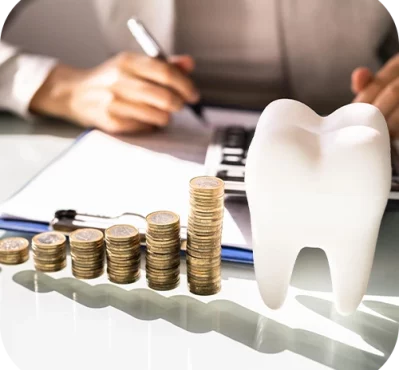We often see patients that were once hesitant to call or visit us even though they were in pain. It might have been because they were afraid or maybe they weren’t sure if what they were experiencing was a true emergency. While both reasons are understandable, we strongly encourage you to seek out a dentist if you are experiencing any pain in your mouth. Our goal at brush365 is to help ease your dental pain. While the idea of getting dental treatment may seem unpleasant, it could be much worse if you ignore the problem. At brush365, our team is here to help you in the case of any dental emergency. Here is a guide on the most common dental emergencies. Please remember, in all of the following scenarios we recommend you call your dentist for an appointment as soon as possible!
Toothache
What To Do:
- Take an over-the-counter pain reliever, preferably Ibuprofen.
- Apply ice to the area.
- Rinse your mouth with warm salt water a few times a day.
- Remove food particles between teeth with dental floss or a air/water flosser.
- Call your dentist for an appointment to evaluate the toothache.
What NOT To Do:
- Use heat.
- Place an aspirin or other pain reliever directly on the tooth or gum.
- Eat very hot, cold, sweet, or spicy foods.
Broken tooth
What To Do:
- Save the broken pieces and rinse your mouth with warm water.
- Take an over-the-counter pain reliever if you have discomfort, preferably Ibuprofen.
- Place dental wax over sharp edges of the tooth to prevent pain and discomfort to the soft tissue in your mouth (i.e., your tongue or cheek)
What NOT To Do:
- Eat hard foods
- Try to use construction tools to smooth any sharp areas in your mouth.
Knocked out tooth
What To Do:
- Pick up the tooth by the crown, not the root. The crown is the portion that you see in your mouth and the root is what is in your gums. If possible, do not touch the root.
- Rinse off blood or dirt with milk, or cold running water if milk isn’t available.
- Reinsert the tooth into the socket if possible and hold it in place by pressing gently with your finger or by biting a clean cloth. If reinsertion isn’t possible, place the tooth in a container of milk. Or, as a last resort, wrap it in a damp cloth.
- Go to the dentist IMMEDIATELY. Teeth that are replanted within 30 minutes have the highest chance to be successfully reintegrated.
What NOT To Do:
- Scrub the tooth
- Do not throw the tooth away
Broken or Lost Filling/Crown
What To Do:
- Save the filling or crown and bring it to your dentist. There’s a chance it can be salvaged.
- Apply dental wax to any sharp edges of the tooth to protect mouth tissues such as your tongue or cheek.
- Use denture adhesive or over-the-counter temporary cement to reattach a crown until you get to the dentist. Remember, this is just an interim solution!
- Call your dentist to have it evaluated sooner than later. The longer a filling or crown is misplaced the more likely decay will grow or worsen.
What NOT To Do:
- Try to replace the filling yourself if it does not go into place easily.
- Eat very hot or cold foods.
- Eat very crunchy foods.
Bleeding Gums
What To Do:
- Rinse your mouth with warm salt water.
- Brush and floss regularly. Remember, an electric toothbrush and air/water flosser are very efficient!
- Use a tip stimulator (a cone-shaped rubber nub, found on a toothbrush or a handle of its own, that is useful for massaging gums).
What NOT To Do:
- Stop brushing regularly. This usually makes the bleeding gums worse.
Bleeding from Cuts in the Mouth or After An Extraction
What To Do:
- Use clean gauze to apply pressure to the area for five minutes.
- If bleeding continues, press a moistened tea bag against the cut for five minutes.
- Call your dentist if you are unable to stop the bleeding with direct pressure.
- Go to the emergency room if you can’t reach your dentist and bleeding is significant.
What NOT To Do:
- Rinse your mouth.
Mouth Sores
What To Do:
- Rinse with warm salt water.
- Apply a piece of ice or a paste made from baking soda and water to the sore for a few minutes.
- Use over-the-counter anesthetics (Orajel, etc.) for temporary relief.
- If the problem doesn’t clear up in a week, see your dentist, as this may be a sign of a more serious problem such as oral cancer.
What NOT To Do:
- Put aspirin on the sore.
- Use steroid creams.
- Use hot packs.
Broken Dental Appliance (Dentures, Bridges, and/or Implants)
What To Do:
- Save all the pieces and bring them to your dentist.
- Cover areas that are impinging your mouth with dental wax to prevent irritation.
- Remove the denture or appliance until you can get to the dentist.
What NOT To Do:
- Try to glue pieces back together yourself.
- Try to bend the wire clasps of a partial denture back into place.
- Wrap pieces in tissue, which can be thrown away by mistake.














